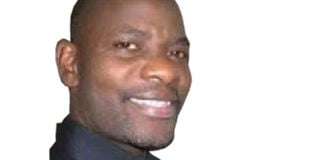Prime
Magufuli was a ruler, not a leader, just like his Ugandan and Rwandan mates

John Pombe Magufuli, Tanzania’s president who died on Wednesday just five months after winning re-election, was a popular politician going by the proportion of the vote he won (84 per cent) in last October’s presidential election.
His main challenger, Tundu Lissu, only managed 13 per cent, according to the official count.
When Magufuli, 61, succeeded Jakaya Kikwete in 2015, nearly every East African who keeps track of news and current affairs was talking about him, mainly because he was taking a hard line on corruption, malfeasance and laziness in his government and the civil service in a way that had never been seen before.
In a region plagued by rampant corruption — Transparency International’s Corruption Perceptions Index (CPI) shows consistently poor scores for all East African member states, with only Rwanda doing better — Mr Magufuli’s new approach put him at the centre of public attention.
He revelled in popularity, but it quickly (and sadly) gave way to populism and a streak of authoritarianism, which was coming dangerously close to autocracy.
Mr Magufuli was an elected leader, but he nearly always acted like a ruler. He ordered that female students who give birth should not resume studies. (The ban was lifted after the World Bank was lobbied to block a $500m loan.) He banned live TV broadcasts of parliamentary proceedings, which the opposition, at the receiving end of his authoritarianism and clampdown, viewed as a move to keep them ‘hidden’.
Mr Lissu, the opposition’s leading light who challenged Mr Magufuli in the October 2020 election, was shot and injured in 2017 and sought medical treatment in Belgium where he lived for years, returning home when the election was only a few months away. People who shot him have never been brought to justice.
How the opposition and independent media are treated says a lot about a country’s democratic credentials.
Tanzania, it seems to me, just like its neighbour Uganda and Rwanda, is a democracy with elected leaders who, paradoxically, act remarkably like tyrants.
It is the prize example of how a country can have many elections and a series of peaceful transfers of power when, in reality, there is little democratic rule to talk about.
In the very year that Mr Magufuli became president, the Ibrahim Index of African Governance (IIAG), a tool that measures and monitors governance performance in African countries, warned that Tanzania was demonstrating a negative trend, reflecting weakened performance in safety, rule of law and human rights. It said that trend had begun in 2011.
It is arguable that little or nothing has changed for the better since 2015 under Mr Magufuli’s administration, although millions of ordinary Tanzanians viewed their president as a star performer and a great achiever.
Mr Magufuli combined populism with religion, a potentially lethal mix. Leaders who rely heavily on religion always want to believe they are right even when evidence is not on their side.
George Bush, for example, said he invaded Iraq in 2003 because God had directed him to do so, although God did not tell him that Iraq had no weapons of mass destruction, the main reason for the invasion.
Mr Magufuli, relying on religion, dismissed the seriousness of Covid-19, imposed no lockdown and encouraged Tanzanians to go to places of worship.
Apart from those who were close to him, no one knows for sure what killed him. Officials blamed heart disease. But if, as has been widely rumoured, Covid-19 killed him, it goes to show how leaders can use demagogy and religion to disastrous effect.
Mr Namiti is a journalist and former
Al Jazeera digital editor in charge of the Africa desk
[email protected] @kazbuk




